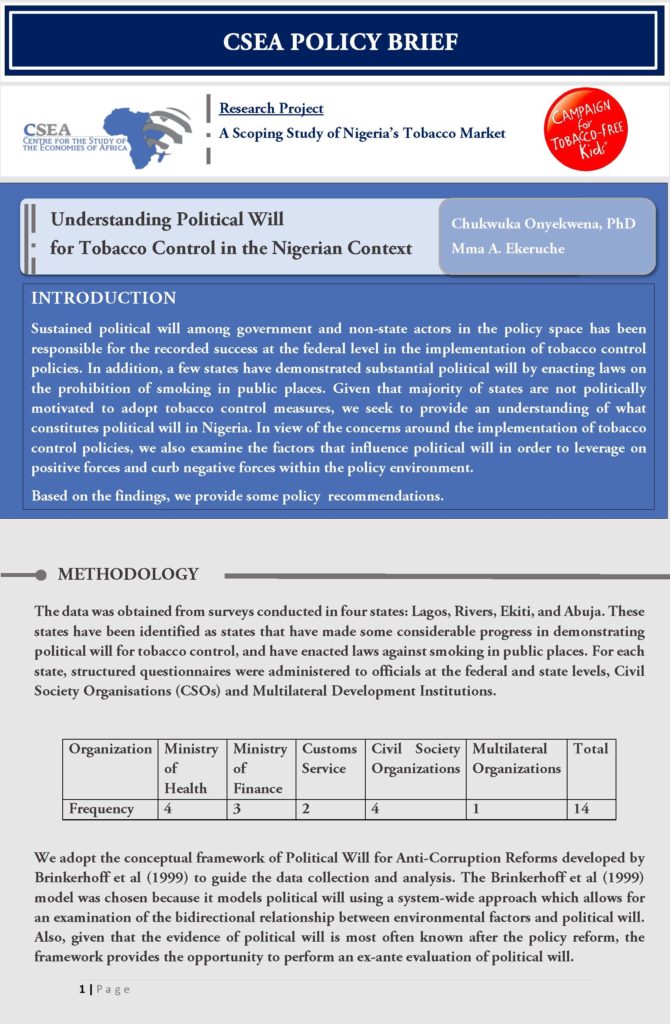Sustained political will among government and non-state actors in the policy space has been responsible for the recorded success at the federal level in the implementation of tobacco control policies. In addition, a few states have demonstrated substantial political will by enacting laws on the prohibition of smoking in public places. Given that majority of states are not politically motivated to adopt tobacco control measures, we seek to provide an understanding of what constitutes political will in Nigeria. In view of the concerns around the implementation of tobacco control policies, we also examine the factors that influence political will in order to leverage on positive forces and curb negative forces within the policy environment.
Policy Brief & Alerts

January 25, 2019
Understanding Political Will for Tobacco Control in the Nigerian Context
Sustained political will among government and non-state actors in the policy space has been responsible for the recorded success at the federal level in the implementation of tobacco control policies. In addition, a few states have demonstrated substantial political will by enacting laws on the prohibition of smoking in public places. Given that majority of […]
Read →
Related
Public Debt Stock And Debt Servicing
Public Debt Stock and Debt Servicing: Public debt stock has steadily increased overtime; reaching over N12, 000 billion naira by 2015Q4. With the persistent fall in crude oil price and the attendant d
Nigeria Economic Update (Issue 9)
The naira depreciated by 8.2 percent from
N305/$ on February 5th, to N330/ $ on February 12th 20166. The apex body identified the
increased domestic demand for forex to pay for foreign medical treatments and
schools fees (15 percent of total demand) 7 as the main drivers. As
a result, the apex bank is considering to discontinue the provision of forex for
payment of medical bills and school fees abroad and to re-channel the forex
towards the manufacturing sector of the economy. With the continuous
depreciation of the naira, and the CBNs resistance from calls to devalue the
currency, the options for alternatives measures seem to be diminishing.


